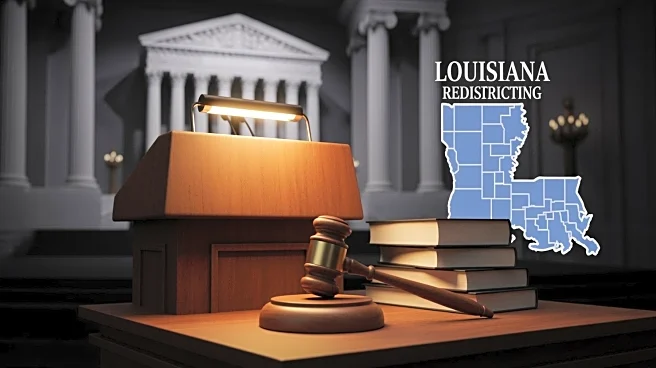What's Happening?
The U.S. Supreme Court is set to hear arguments in a case concerning Louisiana's congressional redistricting, which could affect Section 2 of the Voting Rights Act. This section prohibits electoral maps
that dilute minority voting power. The case arises from Louisiana's decision to add a second Black-majority district, which was challenged by non-African American voters who claim it reduces their influence. The Supreme Court's conservative majority may use this case to further weaken the Voting Rights Act, following previous rulings that have already diminished its protections.
Why It's Important?
The outcome of this case could have significant implications for minority representation in U.S. electoral politics. If the Supreme Court rules against the current interpretation of Section 2, it could lead to fewer minority-majority districts, potentially reducing minority representation in Congress and state legislatures. This would likely benefit Republicans, as Black voters tend to support Democratic candidates. The decision could also set a precedent for future redistricting efforts, impacting how states draw their legislative maps.
What's Next?
The Supreme Court's decision is expected by June, which could allow states to redraw districts before the 2026 midterm elections. This ruling could prompt further legal challenges and legislative actions, as civil rights groups and political parties react to the potential changes in redistricting laws. The case will be closely watched by stakeholders across the political spectrum, given its potential to reshape electoral boundaries and influence future elections.
Beyond the Headlines
The case highlights ongoing debates about race and representation in U.S. politics. It raises questions about the balance between ensuring minority representation and adhering to constitutional principles of equal protection. The decision could also influence broader discussions on race-conscious policies in other areas, such as education and employment.









